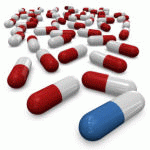Pharmacology
|
22 september 2022 13:44:40 |
| Pharmaceuticals, Vol. 15, Pages 1176: The Clinical Effect of Steroids for Hearing Preservation in Cochlear Implantation: Conclusions Based on Three Cochlear Implant Systems and Two Administration Regimes (Pharmaceuticals) |
|
Tweet The main aim of this study was to assess the clinical effect of steroids (dexamethasone and prednisone) on hearing preservation in patients who underwent cochlear implantation with different cochlear implant systems (Oticon®, Advanced Bionics®, Med-El®). 147 adult patients met the inclusion criteria and were enrolled to the study and divided into three groups depending on the brand of cochlear implant they received and participated in all follow-up visits regularly. They were also randomly divided into three subgroups depending on the steroid administration regime: (1) intravenous dexamethasone (0.1 mg/kg body weight twice a day for three days); (2) combined intravenous and oral steroids (dexamethasone 0.1 mg/kg body weight twice a day plus prednisone 1 mg/kg weight once a day); and (3) no steroids (control group). The results were measured by pure tone audiometry (PTA) at three time points: (i) before implantation, (ii) at processor activation, and (iii) 12 months after activation. A hearing preservation (HP) figure was also calculated by comparing the preoperative results and the results after 12 months. Further measures collected were electrode impedance and hearing threshold in the non-operated ear. The highest HP measures (partial and complete) were obtained in the subgroups who were given steroids. Of the 102 patients given steroids, HP was partial or complete in 63 of them (62%). In comparison, partial or complete HP was achieved in only 15 patients out of 45 (33%) who were not given steroids. There were differences between the three cochlear implant groups, with the Med-El and Advanced Bionics groups performing better than the Oticon group (45% and 43% of the former two groups achieved partial or complete HP compared to 20% in the latter). Hearing thresholds in the non-operated ear were stable over 12 months. Generally, impedance was slightly lower in the 12 month follow-up in comparison with the activation period, with the exception of the Oticon group. (4) Conclusions: Pharmacological treatment with steroids in patients undergoing cochlear implantation helps to preserve residual hearing. |
| 120 viewsCategory: Medicine, Pharmacology |
 Pharmaceuticals, Vol. 15, Pages 1178: Cationic Perylene Antivirals with Aqueous Solubility for Studies In Vivo (Pharmaceuticals) Pharmaceuticals, Vol. 15, Pages 1178: Cationic Perylene Antivirals with Aqueous Solubility for Studies In Vivo (Pharmaceuticals)Pharmaceuticals, Vol. 15, Pages 1175: Partial Synthetic PPARƳ Derivative Ameliorates Aorta Injury in Experimental Diabetic Rats Mediated by Activation of miR-126-5p Pi3k/AKT/PDK 1/mTOR Expression (Pharmaceuticals) 
|
| blog comments powered by Disqus |
MyJournals.org
The latest issues of all your favorite science journals on one page
The latest issues of all your favorite science journals on one page



